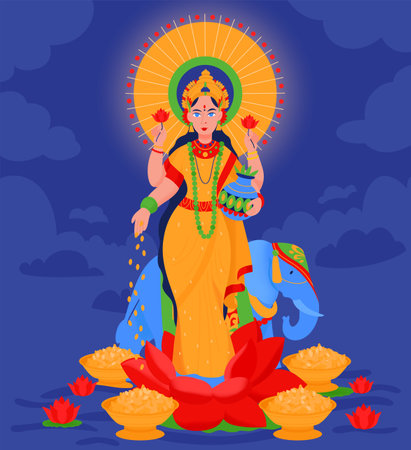1. Understanding the Significance of Baby Naming in Indian Culture
Naming a baby in India is not just a casual or administrative act; it is considered a sacred and meaningful ritual deeply rooted in centuries-old traditions. The process, called Naamkaran or Namakaran Sanskar, marks one of the important Sanskars (rites of passage) in a childs life. Across diverse Indian communities, this ceremony is influenced by religious customs, astrological advice, and family heritage. Hindu families often consult priests to choose an auspicious day and time based on the babys birth chart, ensuring that the chosen name aligns with planetary positions and brings good fortune. In Muslim households, names may be selected from the Holy Quran and announced during a gathering called Aqiqah. Similarly, Sikh families organize a Naam Karan ceremony at the Gurudwara, where the first letter of the child’s name is chosen after reading from the Guru Granth Sahib. Each community adds its unique cultural flavor, but the underlying belief remains consistent: naming bestows identity, blessings, and cultural continuity upon the newborn. The involvement of elders and extended family further highlights how names are seen as carriers of lineage and tradition in Indian society.
2. Ank Jyotish: An Introduction to Indian Numerology
Ank Jyotish, also known as Indian numerology, is an age-old tradition that has played a significant role in shaping the lives of many Indians, especially when it comes to baby naming. The word “Ank” means number and “Jyotish” refers to astrology. This practice interprets the vibrational influence of numbers associated with names, dates of birth, and other personal details to guide important decisions in life, including the selection of a childs name.
Historical Relevance of Ank Jyotish in India
The roots of Ank Jyotish can be traced back to ancient Vedic scriptures where sages and scholars recognized the mystical powers of numbers. Over centuries, this science evolved as a distinct branch of astrology in India. Many families continue to consult numerologists or family elders who are well-versed in Ank Jyotish before finalizing a babys name, believing that an auspicious name number brings good fortune, health, and prosperity.
How Numbers Are Associated with Names
In Ank Jyotish, each letter of the alphabet is assigned a numerical value according to traditional methods. The sum of these values for a name determines its overall vibration or energy. For example:
| Letter | Numerical Value (Traditional) |
|---|---|
| A, I, J, Q, Y | 1 |
| B, K, R | 2 |
| C, G, L, S | 3 |
| D, M, T | 4 |
| E, H, N, X | 5 |
| U, V, W | 6 |
| O, Z | 7 |
| F, P | 8 |
This table is often used by Indian families and numerologists to calculate the total for a baby’s name and match it with the child’s birth date to ensure harmony.
Cultural Importance in Modern India
Ank Jyotish remains deeply woven into Indian culture today. Whether in urban metros or rural villages, parents give careful thought to numerological advice when naming their children. It is not uncommon for families to alter the spelling of a name slightly so that its numerical value becomes more favourable according to Ank Jyotish principles. This practice reflects the enduring belief that numbers carry energies which can influence destiny—a concept respected across generations in India.

3. Customs and Rituals Associated with Baby Naming Ceremonies
In India, baby naming is not just a personal choice but a significant ritual rooted deeply in cultural and religious traditions. The Namkaran Sanskar (naming ceremony) is among the key Sanskars (rites of passage) in Hindu tradition, symbolizing the official entry of the newborn into the family and community. However, the customs and ceremonies associated with baby naming vary widely across Indias diverse regions, religions, and linguistic communities.
Namkaran Sanskar: The Hindu Tradition
The most commonly observed naming ceremony is the Namkaran Sanskar. Typically held on the 11th or 12th day after birth, this ceremony may be delayed for astrological reasons or family convenience. The event usually takes place at home or in a temple, where a priest chants Vedic mantras and performs rituals to invoke blessings from deities. The babys name, often based on astrological calculations and family traditions, is whispered into the childs ear by parents or elders. Prasad (offering), gifts, and feasting are integral parts of this joyful occasion.
Regional Variations Across Indian Communities
South Indian Practices
In Tamil Nadu, the ceremony is known as Thottil Ceremony, where the baby is laid in a decorated cradle, and elders bless the child while announcing the name. In Keralas Hindu families, its called Noolukettu, involving sacred thread tying along with naming.
Maharashtrian Traditions
Maharashtrians celebrate Barsa, typically on the 12th day after birth. During this ritual, relatives whisper their suggested names in the babys ear before the final name is chosen by parents.
Bengali Naming Rites
Among Bengalis, the Naamkaran or Chudakarana (also associated with tonsure) may be performed alongside other rituals. Family priests play a key role in selecting auspicious names using astrology.
Sikh and Muslim Communities
Sikhs perform the Naam Karan at Gurdwaras, where a random hymn (hukamnama) from Guru Granth Sahib determines the first letter of the babys name. Muslim families observe Aqiqah, which includes naming, animal sacrifice, and distribution of food to relatives and needy people. Names are often derived from Arabic origins with spiritual significance.
Cultural Significance and Modern Adaptations
Despite regional differences, these naming ceremonies foster community bonding and reinforce cultural identity. In urban areas, families may blend traditional rituals with modern celebrations like themed parties or virtual gatherings to accommodate contemporary lifestyles. Yet, even today, respect for age-old customs remains strong across generations in India.
4. Role of Nakshatra, Kundli, and Numerology When Choosing Names
In Indian tradition, the process of naming a newborn is not just a family affair but a deeply spiritual and astrological event. The selection of a baby’s name involves the consultation of experienced Pandits (priests) who use various ancient systems to guide parents towards a name that aligns with cosmic energies. The most prominent among these systems are Nakshatra (birth star), Kundli (horoscope), and Ank Jyotish (numerology).
Nakshatra: Guiding Syllables for Names
Every child is born under a specific Nakshatra, which is determined by the position of the moon at the time of birth. Each Nakshatra has associated syllables that are believed to bring luck and positive energy if used at the beginning of the child’s name. For example:
| Nakshatra | Suggested Starting Syllables |
|---|---|
| Ashwini | Chu, Che, Cho, La |
| Bharani | Lee, Lu, Le, Lo |
| Krittika | A, E, U, Ea |
| Rohini | O, Va, Vi, Vu |
This traditional approach ensures that the vibration of the name matches the child’s astrological profile.
Kundli: Astrological Chart Analysis
The Kundli or Janam Patrika is another essential aspect in Indian baby naming. This personal horoscope is prepared based on the date, time, and place of birth. Pandits analyse the Kundli to understand planetary positions and their influence on the childs life. If certain planets are weak or afflicted, specific names are suggested to mitigate negative effects through their phonetic vibrations.
An Example Table: Influences Considered from Kundli
| Kundli Factor | Name Selection Impact |
|---|---|
| Lagna Lord (Ascendant Ruler) | Name syllable related to ruling planet for strength |
| Moon Sign Lord | Name with syllable linked to Moons zodiac sign for mental peace |
| Planetary Dasha at Birth | Name chosen to pacify or strengthen current dasha period planet |
Ank Jyotish: The Power of Numbers in Naming
Ank Jyotish or numerology (Ank Shastra) assigns numerical values to each letter in a name. The sum total is then matched with the babys birth date number to ensure compatibility and auspiciousness. Many families consult numerologists alongside Pandits for this calculation as it is believed that a harmonious number can bless the child with success and prosperity.
Sample Numerological Calculation Table (Based on Chaldean System)
| Letter | Number Value |
|---|---|
| A, I, J, Q, Y | 1 |
| B, K, R | 2 |
| C, G, L, S | 3 |
| D, M, T | 4 |
| E, H, N, X | 5 |
| U, V, W | 6 |
| O, Z | 7 |
| F, P | 8 |
The final name is chosen after ensuring that both its astrological and numerological influences are favourable. This multi-layered process highlights how Indian culture blends spirituality and science in significant life rituals like baby naming.
5. Popular Naming Patterns and Meanings in Different Indian Languages
India’s baby naming traditions reflect the country’s incredible linguistic and cultural diversity. Across regions, names carry deep meanings and often draw from ancient sources like Sanskrit, local legends, or religious texts. Today, parents are blending tradition with modernity, creating unique naming trends while still honouring their roots.
Sanskrit-Origin Names: Timeless Appeal
Sanskrit names remain evergreen across India, especially among Hindi, Bengali, Marathi, and Kannada speakers. Many popular names such as Aarav (peaceful), Aarohi (musical tune), Vedika (consciousness), and Ishaan (sun or Lord Shiva) have clear Sanskrit origins. These names are chosen for their auspicious meanings and spiritual undertones, aligning with numerological practices to attract positive vibrations.
The Blend of Modern and Traditional Names
In urban India, a growing trend is the creative fusion of traditional Indian names with modern-sounding ones. Parents may select a name that is easy to pronounce internationally but still carries Indian significance. For example, combining elements like “Aniya” (grace in Bengali) or “Vihaan” (dawn in Hindi) reflects both heritage and contemporary preferences. Numerologists are often consulted to ensure these modern-traditional blends also align favourably with Ank Jyotish principles.
Naming Trends in Major Linguistic Communities
Hindi-speaking Regions
Names here frequently honour deities (Kartikeya, Saanvi) or virtues (Dhairya—patience). Short, melodious names ending in vowels are currently popular.
Tamil Nadu
Tamil names often draw from ancient Sangam literature or Dravidian roots. Names like Aadhira (moon), Kavin (beauty), and Nila (moon) are both poetic and meaningful. Sometimes parents combine the first syllables of parental names to create a unique baby name—a practice known as portmanteau naming.
Bengali Community
Bengalis favour lyrical, gender-neutral names like Anindya (irresistible), Debanjan (part of God), or Moumita (like honey). Nicknames (‘daak naam’) are common alongside official names (‘bhalo naam’).
Telugu-speaking Families
Telugu baby names like Sai Teja, Lakshmi Prasanna, or Anvitha often invoke gods/goddesses or positive traits. Double-barrelled names combining deity names with modern words are trending.
Cultural Significance of Name Meanings and Numerology
No matter the language group, Indian families typically seek out names that promise luck, prosperity, or moral strength—and these choices are double-checked with Ank Jyotish calculations for auspiciousness. This blend of linguistic pride, spiritual symbolism, and numerological guidance ensures that every baby’s name is not just an identifier but a blessing for life’s journey.
6. Modern Inspirations and Evolving Baby Naming Trends
In recent years, the landscape of baby naming in India has undergone a significant transformation, especially among urban families. While traditional practices such as consulting Ank Jyotish or numerology continue to hold value, there is a visible shift in attitudes influenced by modern lifestyles, education, and exposure to global cultures.
Changing Attitudes Among Urban Indian Families
Many urban Indian parents are now seeking names that are not only rooted in tradition but also resonate with modern sensibilities. The emphasis on finding meaningful names aligned with numerological recommendations remains; however, practicality and uniqueness are gaining importance. For instance, parents may look for names that are easy to pronounce globally, ensuring their children face fewer challenges in multicultural environments.
Influence of Celebrities
Celebrities play a pivotal role in shaping contemporary baby naming trends in India. Whether it is Bollywood stars choosing unconventional or cross-cultural names for their children, or cricketers blending traditional and modern influences, their choices often become aspirational for many families. Names like Taimur, Aaradhya, and AbRam have sparked conversations and inspired many parents to think beyond conventional options while still respecting heritage.
Shift Towards Unique and Globally Accessible Names
With greater access to information and international exposure, there is a clear trend towards selecting unique names that stand out yet remain easy for people across the world to understand and pronounce. Parents are combining elements from different languages—Hindi, Sanskrit, English, and even regional dialects—to create hybrid or innovative names. This approach allows them to honor their roots while preparing their children for a global future. In summary, while the Indian tradition of baby naming and numerology remains influential, evolving societal values are leading to a harmonious blend of age-old wisdom and contemporary inspiration.


